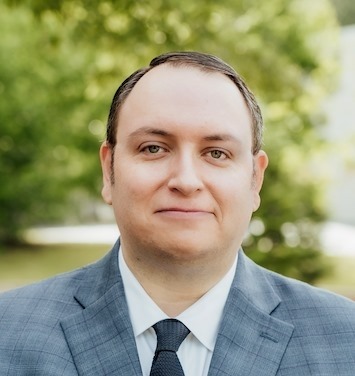In the world of wealth creation and financial security, few avenues are as promising and enduring as real estate investment. For those seeking to build long-term wealth, generate passive income streams, and secure their financial future, real estate stands as a tried-and-true path to success. Whether you're a seasoned investor looking to expand your portfolio or a novice eager to dip your toes into the lucrative waters of property ownership, this comprehensive guide will illuminate the way forward.
We will embark on a journey through the intricacies of real estate investing, tailored specifically for property investors and landlords. The key to a successful real estate venture lies not only in making prudent property acquisitions but also in mastering the art of property management. As we navigate through this blog post, we will underscore the vital role property management plays in boosting the returns on your real estate investments.
Our aim is to equip you with the knowledge, strategies, and insights necessary to confidently embark on your real estate investment journey. Whether you're interested in residential properties, commercial spaces, or a combination of both, we will provide you with valuable insights and actionable steps to help you make informed decisions and optimize your real estate investments.
So, whether you're a newcomer eager to make your first property purchase or an experienced investor seeking to refine your approach, read on to discover how to start investing in real estate and why effective property management is the secret weapon that can elevate your investment game to new heights.
Are you ready to venture into the world of real estate investment and become a landlord? Congratulations! You're about to embark on a journey that has the potential to secure your financial future and provide a steady stream of passive income. In this section, we'll break down the essential steps to help you get started on the right foot.

1. Real Estate Investment Opportunities: A Guide for Aspiring Landlords
Are you considering real estate investment as a means to secure your financial future and generate passive income? You're not alone. Real estate has long been a favored path to wealth creation, and in this section, we'll lay the foundation for your journey into the world of real estate investment.
Exploring the fundamentals of real estate investment:
Before you begin scouring property listings or attending open houses, it's essential to understand the basics of real estate investment. At its core, real estate investment involves acquiring properties with the expectation of generating rental income and, over time, realizing appreciation in property value.
- Cash Flow: This represents the income generated by your rental properties after accounting for expenses like mortgage payments, property taxes, maintenance, and property management fees. Positive cash flow is typically the goal for most investors.
- Appreciation: Real estate properties have the potential to increase in value over time. Understanding how to evaluate an area's historical and projected appreciation rates can help you make informed investment decisions.
- Location, Location, Location: The location of your investment property significantly influences its rental income potential and long-term appreciation. Researching and selecting the right location is paramount.
- Property Types: Real estate encompasses a wide variety of property types, from residential homes and apartments to commercial spaces and industrial buildings. Each property type comes with its own set of advantages and considerations, so it's vital to determine which aligns best with your investment goals.
How property management enhances your investment:
Property management plays a crucial role in realizing the full potential of your real estate investments. Effective property management can:
- Save you time by handling tenant inquiries, maintenance requests, and other day-to-day tasks.
- Ensure quality tenant screening to reduce the risk of problematic renters.
- Guarantee timely rent collection, minimizing income disruptions.
- Oversee maintenance and repairs to keep your properties in top condition.
- Navigate landlord-tenant laws and handle legal issues and evictions when necessary.
- Understanding the significance of property management from the outset will set you on the path to becoming a successful landlord and real estate investor. With this foundation in place, let's move on to the next step in your real estate investment journey.

2. From Novice to Pro: Your Comprehensive Roadmap to Real Estate Investing
Now that you have a grasp of the fundamentals, it's time to chart your course from novice to pro in the world of real estate investment. In this section, we'll provide you with a step-by-step roadmap to guide your journey, emphasizing the pivotal role of property management in maximizing your profits.
Step 1: Define Your Investment Goals
Your first task as an aspiring real estate investor is to clearly define your investment objectives. Are you seeking short-term gains through property flips, or do you aim to build long-term wealth through rental income and property appreciation? Your goals will dictate your investment strategy and property choices.
Step 2: Assemble Your Investment Team
No successful real estate investor operates in isolation. Building a team of professionals is critical to your success. Your team may include a real estate agent, mortgage broker or lender, property manager, real estate attorney, and financial advisor.
Step 3: Assess Your Financing Options
Real estate investment often requires substantial capital, and understanding your financing options is paramount. Consider conventional mortgages, FHA loans, hard money loans, and private financing, depending on your financial situation and goals.
Step 4: Begin Your Property Search
With your investment goals, team, and financing options in place, it's time to start searching for properties. Collaborate closely with your real estate agent and use online platforms to identify properties that align with your objectives.
Step 5: Make Informed Investment Decisions
As you evaluate potential investment properties, consider factors such as location, property type, potential for cash flow, and the property's condition. Perform due diligence by conducting property inspections and researching market trends.
Step 6: Property Management: DIY or Professional Assistance?
The question of whether to manage your properties yourself or hire a professional property management company depends on your resources, time availability, and expertise. Both options have their advantages, and we'll delve into the pros and cons to help you make an informed choice.
By following this comprehensive roadmap, you'll be well on your way to transitioning from a novice investor to a seasoned pro, all while maximizing the benefits of effective property management. In the next sections, we'll explore strategies employed by experienced landlords and delve deeper into the power of property management in real estate investment.
.jpg)
3. Building Wealth Through Real Estate: Strategies for Savvy Landlords
Congratulations on progressing from a novice to a more seasoned investor! Now, let's explore the strategies employed by experienced landlords to build wealth through real estate, with a continued emphasis on the significance of property management.
Strategy 1: Diversification
One of the key principles of successful real estate investing is diversification. Savvy landlords understand the importance of spreading their investments across different property types and geographic locations. This reduces risk and helps ensure that a downturn in one market doesn't significantly impact their overall portfolio.
Strategy 2: Value-Add Investments
Experienced landlords often seek out value-add opportunities. This might involve purchasing properties in need of renovation, repositioning underperforming assets, or adding amenities to increase tenant satisfaction and rental income. Effective property management is essential in executing these strategies, as it involves coordinating renovations, managing contractors, and ensuring that improvements translate into higher property values and rental rates.
Strategy 3: Long-Term Planning
Wealth-building through real estate is typically a long-term endeavor. Seasoned investors think strategically and plan for the long haul. They focus on acquiring properties that are likely to appreciate in value over time and provide consistent rental income. Property managers play a vital role in ensuring that properties are well-maintained and continue to attract reliable tenants, contributing to the long-term success of the investment.
Strategy 4: Risk Management
Experienced landlords are diligent about risk management. They understand the importance of property insurance, maintaining adequate cash reserves for unexpected expenses, and conducting thorough tenant screenings to minimize the risk of income disruptions. Property managers are invaluable in helping landlords implement these risk management strategies.
Strategy 5: Market Research and Adaptation
The real estate market is dynamic, and savvy landlords continuously monitor market trends. They adapt their investment strategies based on changing conditions. Property managers with local expertise can provide valuable insights into market trends, helping landlords make informed decisions about property acquisitions, rental rates, and when to buy or sell.
Strategy 6: Passive Income Optimization
Ultimately, the goal of real estate investment for many landlords is to generate passive income. Savvy investors prioritize maximizing cash flow by keeping properties occupied with reliable tenants, implementing rent increases when appropriate, and minimizing vacancies. Property managers excel in tenant retention and ensuring that rental income is optimized.
Incorporating these strategies into your real estate investment approach can significantly enhance your wealth-building potential. As you continue your journey as a landlord and investor, remember that effective property management remains a linchpin in executing these strategies successfully. In the next section, we'll delve into the advantages of enlisting the services of a professional property management company.
.jpg)
4. The Power of Professional Property Management in Real Estate Investment
In this section, we'll explore the benefits of partnering with a professional property management company and how it can streamline operations and increase the value of your real estate investments.
Advantage 1: Time and Stress Savings
Managing rental properties can be time-consuming and stressful. Property management companies handle the day-to-day tasks, allowing you to focus on other investments, your career, or your personal life. They take care of tenant inquiries, maintenance requests, and emergencies, ensuring that you don't have to be on call 24/7.
Advantage 2: Tenant Screening and Retention
Property managers are experts in tenant screening. They can find quality tenants, conduct background checks, and verify rental histories to reduce the risk of problematic renters. Furthermore, they excel in tenant retention, ensuring that good tenants stay longer, and reducing turnover and vacancy costs.
Advantage 3: Rent Collection and Financial Management
Timely rent collection is crucial for your cash flow. Property management companies are skilled at collecting rent on time and handling the financial aspects of your investments, including accounting, expense management, and tax reporting.
Advantage 4: Property Maintenance and Repairs
Well-maintained properties not only retain their value but also attract higher-quality tenants willing to pay premium rents. Property managers coordinate maintenance and repairs, ensuring that your properties are in excellent condition.
Advantage 5: Legal Expertise and Conflict Resolution
Property managers are well-versed in landlord-tenant laws and can navigate legal issues and eviction processes when necessary. Their expertise can protect you from costly legal disputes.
Advantage 6: Market Knowledge and Pricing Strategy
Property managers have local market knowledge and can help you set competitive rental rates. They also adjust rent prices as market conditions change, ensuring your properties remain attractive to tenants.
By enlisting the services of a professional property management company, you tap into a wealth of expertise and resources that can optimize the performance of your real estate investments. It's a strategic move that can ultimately lead to higher returns and a more streamlined investment experience.
.jpg)
5. Real Estate Investing Made Easy: Mastering the Art with Property Management
In this final section, we'll simplify the real estate investment journey for beginners and showcase how efficient property management can turn novices into successful property owners and investors.
Starting Your Journey as a Novice Investor
If you're new to real estate investment, it's natural to feel overwhelmed. However, with the right guidance and a solid plan, you can confidently take your first steps:
- Begin with a clear understanding of your investment goals and risk tolerance.
- Assemble a knowledgeable investment team, including a real estate agent and, potentially, a property manager.
- Explore financing options and get pre-approved for a mortgage to establish your budget.
- Start your property search with the assistance of your real estate agent.
- Property Management: Your Secret to Success
As a novice investor, property management may seem like a daunting task. However, it's essential to recognize that you don't have to manage your properties personally. Property management companies exist to make your journey easier:
- They handle tenant screening and placement to ensure reliable renters.
- Property managers coordinate maintenance and repairs to keep your properties in top condition.
- They ensure rent is collected on time and handle financial management.
- Property managers navigate legal complexities and resolve disputes when necessary.
- With their local market knowledge, they help you set competitive rental rates.
- By leveraging the expertise of a property management company, you can overcome the learning curve and accelerate your path to success as a real estate investor. As you gain experience and confidence, you can decide whether to continue with property management services or take on more of the responsibilities yourself.
Conclusion
In summary, real estate investment holds the potential for significant wealth creation and financial stability. Whether you're embarking on your investment journey or have years of experience under your belt, grasping the core principles, defining your objectives, and leveraging the advantages of property management are essential steps toward realizing your investment goals.
At Revolution Rental Management, we specialize in helping investors like you streamline their real estate investments. Our professional property management services are designed to save you time, reduce stress, and maximize the returns on your property investments. Ready to take the next step toward successful real estate ownership? Contact us today to learn more about how we can support your investment endeavors and help you achieve your financial aspirations. Your path to real estate investment success begins here.

.jpg)
